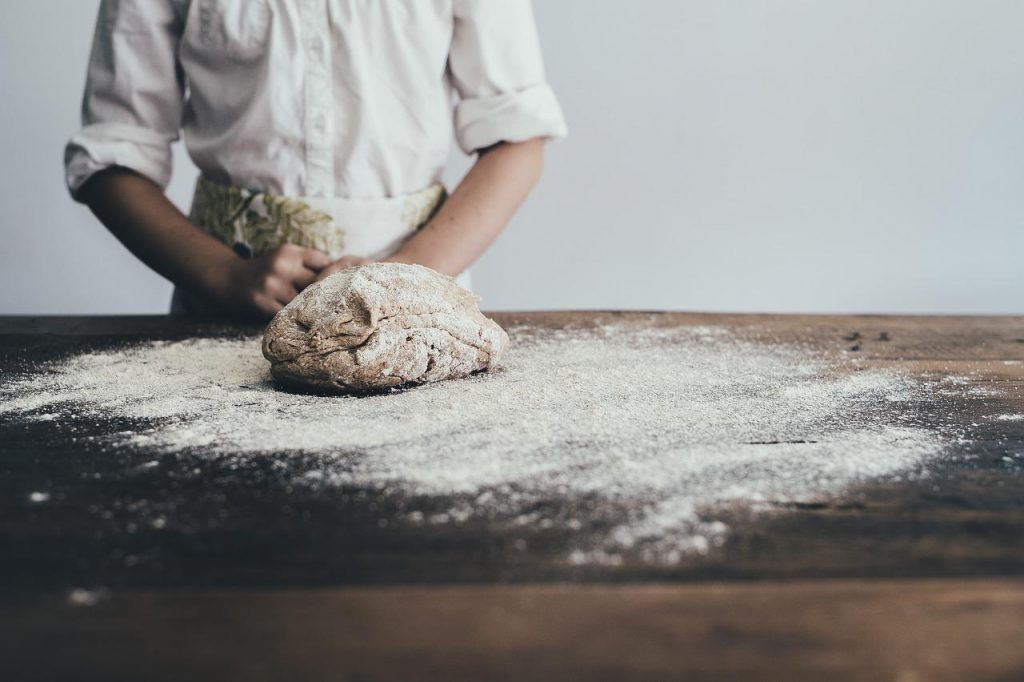
Here we will discuss nine surprising ways you can improve your baking skills.
In fact, seasoned bakers find the following tips essential to achieving the final products they desire.
Keep reading to find out more.
1. Don’t over or under mix
Many things could happen to your baked goods when you over or under-mix the batters.
For example, over mixing can result in too much air in your mixture, or gluten may be overactivated, making the finished product gummy, bubbly or dense. On the other hand, under mixing may leave a mixture lumpy, and the ingredients might not react appropriately.
2. Keep the oven closed
It may be tempting to open your oven every now and then to take a peek as it cooks; however, opening the oven prematurely can cause problems for your food.
Opening the oven during baking might collapse cakes, and other dishes may not cook thoroughly. Therefore, it is best to leave the heat trapped inside the oven and view the progress through the glass window instead.
3. Use a light-colored pan
Dark-colored pans absorb more heat which may cause your baked goods to burn on the bottom or cook unevenly.
It is best to invest in pans that are light in color to avoid these issues. However, if you are a more experienced baker, you can experiment with temperatures to find the appropriate setting for your dark-colored pan.
4. Use the proper baking ware
The color of your bakeware is not the only important factor when choosing your equipment.
Use the baking sheet or pans that your recipe suggests and purchase the appropriate kitchen tools before getting started. A few things to have on hand are large mixing bowls, measuring cups and spoons, a whisk, a kitchen scale, and a rubber spatula.
5. Calibrate your oven
Baking at the wrong temperature can ruin your entire dish, so calibrating your oven is important.
You can check to make sure your oven is heating to the correct setting by turning it on and placing an oven thermometer inside after it has fully heated up. If your oven does not warm to the temperature you have set, you can recalibrate it according to the user manual’s directions.
An incorrect baking temp may burn, undercook or disfigure the final result of your dish.
6. Use fresh ingredients
When baking, using fresh ingredients is vital for creating a quality dish. Fresh ingredients taste better, have a more potent flavor, and are healthier since they do not contain harmful preservatives.
Avoid foods that have harmful and foul-tasting additives like sodium, sulfites, nitrates, added sugar, propylene glycol, and sorbates.
You can find fresh fruits, vegetables, meats, and other foods at your local farmer’s market, roadside stands, and community gardens.
7. Stick to the recipe
Sticking to your recipe is essential, especially when you are not familiar with the science behind the formula. It is common for amateur bakers to accidentally ruin their baked goods by adding ingredients they feel will improve their food.
For example, if you add strawberries to a banana bread recipe, you will end up with a mushy mess, or if you add extra cannabutter to brownies to increase potency, the treat will taste unpleasant.
It is also essential to ensure you do not leave out ingredients when you do not have them, or your food may not bond well, taste good, or cook properly.
8. Be prepared
Before mixing your ingredients, make sure you are prepared for the entire baking process.
Double-check that you have all ingredients, the correct pans, aluminum foil, oven mitts, mixing equipment, and any other items you may need.
Not being prepared can make baking take longer than expected, make you poorly mix ingredients, over or under-measure items, or ruins batter because you need to run to the store halfway through.
9. Get all temperatures right
Oven temperature is not the only temperature that is important to your final product.
Many recipes call for temperature-specific ingredients such as room temperature butter and hot or cold water.
Additionally, pay attention to steps like “chill before baking” or “leave at room temperature for two hours.” Failure to follow these steps can change the consistency of your batters and doughs or improperly cook them.
Many recipes are sensitive to small changes or mistakes, making baking tricky. However, you can avoid common baking issues by following your recipe, ensuring all temperatures are correct, using the right equipment, having fresh ingredients, and more.


